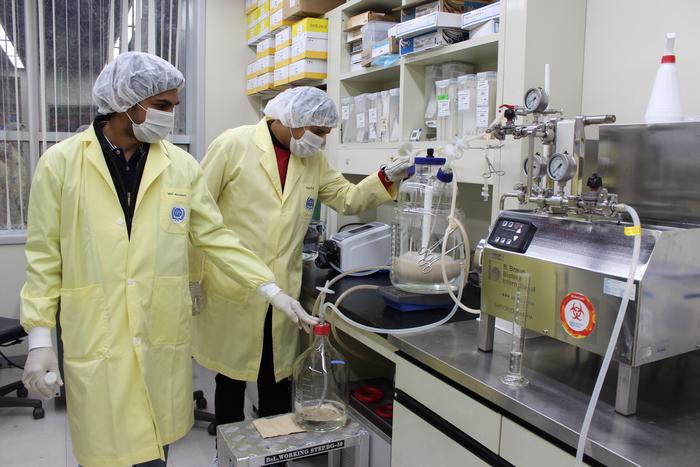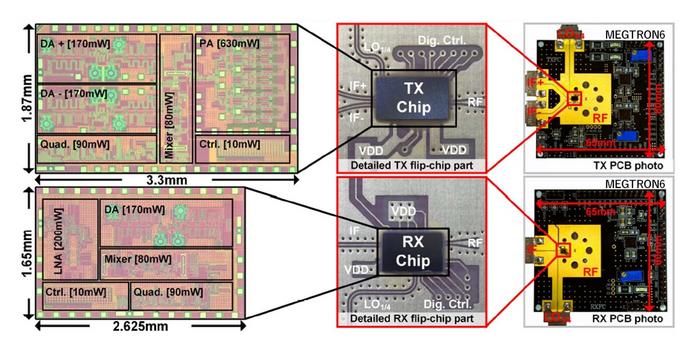Reducing the energy consumption of software: Sebastian Erdweg receives ERC Consolidator Grant
The energy consumption of data centers and information and communication technology (ICT) devices is growing at an alarming rate, projected to constitute up to 20 percent of global energy consumption by 2030. To support the digital transformation effectively, we need to enhance software efficiency. A promising avenue in this endeavor is incremental computing, where computations […]

The energy consumption of data centers and information and communication technology (ICT) devices is growing at an alarming rate, projected to constitute up to 20 percent of global energy consumption by 2030. To support the digital transformation effectively, we need to enhance software efficiency. A promising avenue in this endeavor is incremental computing, where computations react to input changes rather than recomputing results from scratch. However, existing approaches to incrementality have limited applicability: They either demand expert knowledge, support only specialized domains (e.g., database queries), or yield only modest speedups. At Johannes Gutenberg University Mainz (JGU), Professor Sebastian Erdweg and his team aim to develop a methodology for automatically incrementalizing computations and significantly improving their time and energy efficiency. The European Research Council (ERC) is sponsoring the new project “AutoInc” to the extent of EUR 2 million. Sebastian Erdweg was appointed professor at JGU’s Institute of Computer Science in 2019, where he leads the Programming Languages group. The ERC Consolidator Grant is one of the EU’s most prestigious and valuable research awards for outstanding researchers.

Credit: photo/©: Vladimir Dimitrov
The energy consumption of data centers and information and communication technology (ICT) devices is growing at an alarming rate, projected to constitute up to 20 percent of global energy consumption by 2030. To support the digital transformation effectively, we need to enhance software efficiency. A promising avenue in this endeavor is incremental computing, where computations react to input changes rather than recomputing results from scratch. However, existing approaches to incrementality have limited applicability: They either demand expert knowledge, support only specialized domains (e.g., database queries), or yield only modest speedups. At Johannes Gutenberg University Mainz (JGU), Professor Sebastian Erdweg and his team aim to develop a methodology for automatically incrementalizing computations and significantly improving their time and energy efficiency. The European Research Council (ERC) is sponsoring the new project “AutoInc” to the extent of EUR 2 million. Sebastian Erdweg was appointed professor at JGU’s Institute of Computer Science in 2019, where he leads the Programming Languages group. The ERC Consolidator Grant is one of the EU’s most prestigious and valuable research awards for outstanding researchers.
Increased use of incremental computing for reactive applications
The digital transformation demands substantial energy resources. While servers and ICT devices must contribute to the necessary reductions in energy consumption, hardware improvements alone will not be sufficient. “To sustain the ongoing digital transformation, we must find ways to run software much more efficiently,” said Professor Sebastian Erdweg. “Incremental computing has the potential for enormous improvements in energy efficiency, provided we can solve its fundamental limitations.” Incremental computing is used, for example, in vehicle navigation systems for calculating detours to avoid traffic jams or in spell checkers integrated into text programs. “Incremental computing lies at the core of reactive applications like these, which involve the input of data and an immediate system response,” added Erdweg. Instead of recalculating results from scratch, incremental computations react only to these changes in input. This saves both time and energy.
Incremental computing is demanding in terms of both technology and conception
“Incremental computing is highly rewarding, but its creation requires much effort and is very demanding both on a technical and conceptional level.” According to Erdweg, this is why incremental computing is used rarely or only in simple applications, such as spell checking. The development of incremental computing techniques requires considerable expertise. In their new project, “AutoInc – Asymptotic Speedups for Free through Automatic Incremental Computing,” Erdweg and his team aim to overcome this challenge and facilitate a breakthrough in incremental computing: The idea is to convert non-incremental computations automatically into incremental computations. In preliminary experiments, the team has achieved calculations up to 10,000 times faster. The researchers expect that the results of the project will not only improve the efficiency of software programs but also provide fundamental insights into the nature and limitations of automatic incremental computing.
Together with his team, Sebastian Erdweg focuses on programming abstractions, programming languages, and programming tools designed to simplify the development and maintenance of complex software systems. He earned his doctorate at Philipps-Universität Marburg in 2013. He then held a postdoc position at TU Darmstadt until 2016, after which he was appointed as an assistant professor at TU Delft in the Netherlands. In 2019, Sebastian Erdweg was appointed as a Professor of Programming Languages at Johannes Gutenberg University Mainz.
The ERC Consolidator Grant
The ERC Consolidator Grant is one of the most valuable EU funding schemes awarded to individual researchers. Through these grants, the European Research Council (ERC) supports outstanding scientists within seven to twelve years after completing their doctorate. Successful applicants must not only demonstrate excellence in research but also provide evidence of the groundbreaking nature and feasibility of their project. The funding period spans five years.
The European Research Council has also approved two other ERC Consolidator Grants at JGU: Professor Dorothee Dormann’s project on neurodegenerative diseases and Professor Shuqing Xu’s project on the evolution of ecosystems in climate change. Furthermore, JGU-based palaeogeneticist Professor Joachim Burger is involved in an ERC Consolidator Grant project researching the adaptation of historical populations to urban life, which is coordinated by Professor Christina Papageorgopoulou from Democritus University of Thrace.
What's Your Reaction?

































